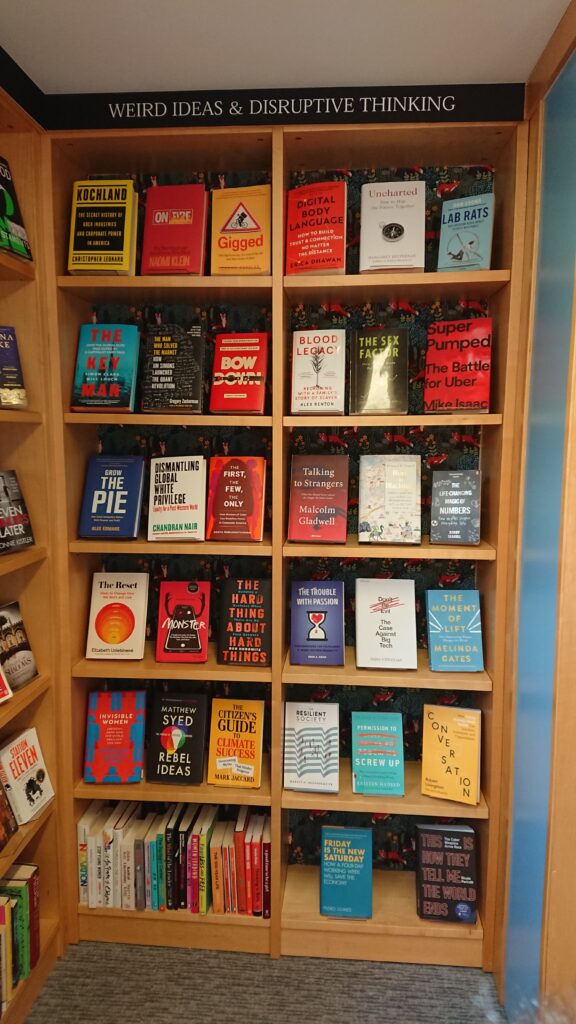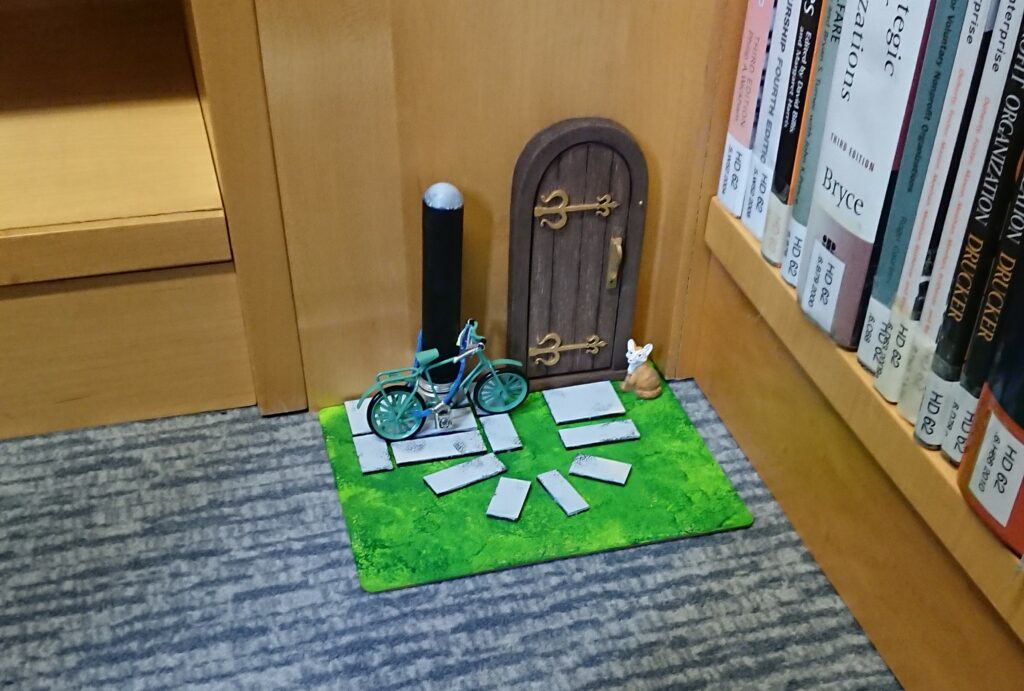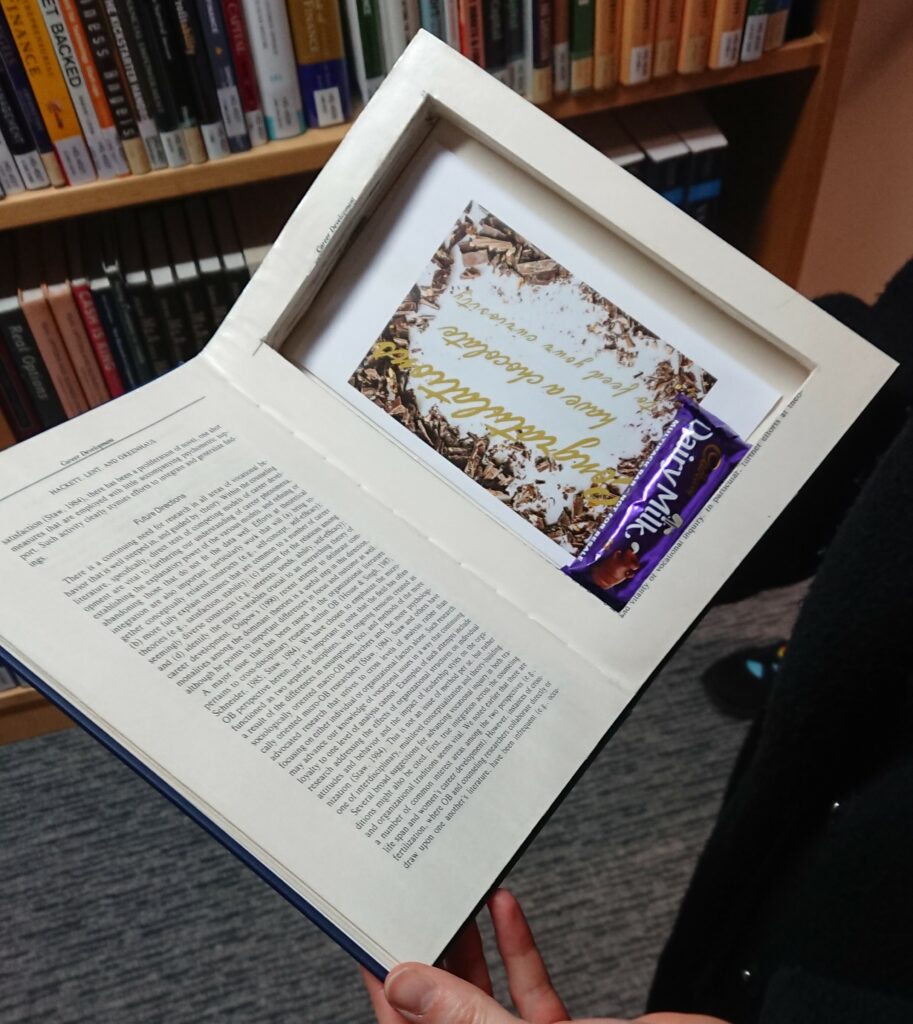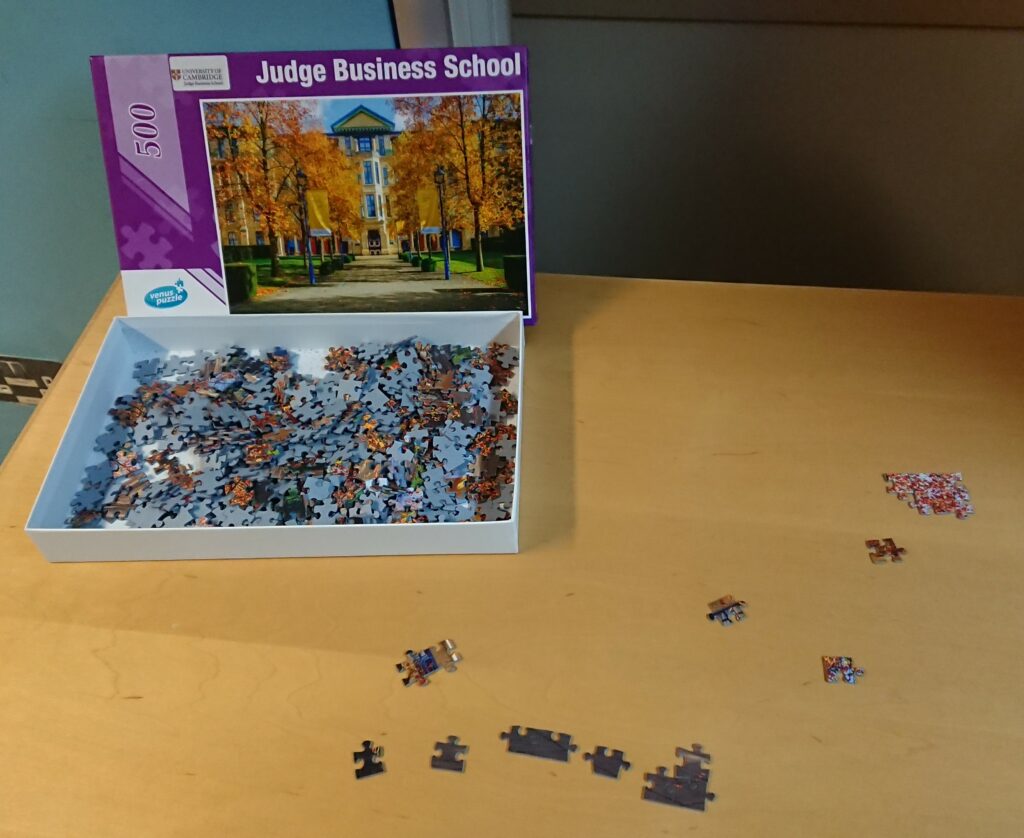In April we were able to visit the library at the Judge Business School, which is housed in the old Addenbrooke’s Hospital building on Trumpington Street. It is a striking building, remodelled in the 1990s in a colourful, post-modernist style. We were met in the lobby by the Deputy Information and Library Services Manager, who gave us our first sneak peek of the library as we went to collect the User Experience Librarian, before leading us up one of the building’s “floating” staircases to the Business School’s café. They very kindly treated us to our choice of hot drinks, and we all sat down in the café to get an overview of how they run their library and how it fits into life and work at the Judge Business School.


They have a relatively small physical collection of approximately 10,000 volumes, but have a huge digital offering of resources like e-books and databases. This means that their students can access library resources from anywhere in the building – and anywhere in the world, which is very important as they have a large number of international students who are studying remotely. These students are very rarely – if ever – in Cambridge to visit the physical library space, so it is crucial that they are able to access the relevant materials online. They always aim to get a digital copy alongside every print copy of a book they order.
The Judge library offers an incredibly user-focused service (where many older libraries with lots of rare books might be more collections-focused), and this comes across in their customer service and user experience initiatives as well as their collections management. For example, due to the high number of remote international students, they manage an incredibly active chat service. While the COVID-19 pandemic forced many academic libraries to start offering services like academic sessions and inductions over Zoom, the Judge library was already offering such services via Skype well before this.
It was quite interesting to note that none of the library staff came from a business background, despite working in a specialist business library. As we’ve seen from speaking to other specialist librarians, this appears to be quite common – in many cases, having the skills to run a library is the most important thing, and specialist knowledge can be picked up along the way. This is really reassuring and good to know, as new professionals like us might otherwise be put off applying to roles in specialist libraries because they don’t have specialist knowledge of that field.
Once we got into the library, it quickly became evident that they really do understand and cater to the needs of their users (both academically and generally) and it comes across in every facet of how they run their library. Their “Boost” collection offers a number of non-academic titles to supplement readers alongside their study needs – from graphic novels and pleasure reads to wellbeing titles and recipe books.


Just across from this is the “Weird Ideas” collection, which highlights books that introduce new, innovative, and disruptive ideas to the world of business and economics. Interestingly, as some of these ideas inevitably make it into the mainstream (cryptocurrency being one such example), the book is no longer a ‘weird’ idea and gets moved to the main collection. This is therefore a very interesting and dynamic part of the library, and a concept that works uniquely well for a subject like business.

They also showed us Bloomberg, a database that provides live stock market information, the same as anyone on Wall Street would have in their office (the “Buy” button is understandably deactivated on the library version). There’s a lot of interesting information that can be found on Bloomberg but one of the highlights that they showed us was Posh, an internal marketplace for the ultra-rich. Think eBay or Craigslist but for yachts, small islands, city centre apartments, and Fabergé eggs. For us librarians it was a lot of fun to poke around and explore Bloomberg, but for the students and staff at Judge Business School, I imagine it must be an invaluable resource of live information.


The space offers blankets and bean bags so students can have a comfortable experience in the library and even squeeze in a power nap if they need to. Past these and up the stairs, alongside some student desks, is a paper “graffiti wall” where students can provide feedback about different features of the library – and the library staff write back! This allows students to report things that they might not bother to write an email about or find a member of staff for – for example if a door hinge squeaks.

As well as all the interesting and varied practical library services and UX initiatives, there were also a lot of fun extras. As Star Wars Day was approaching (May 4th), they had a lot of Star Wars paraphernalia in the office ready to set up for it, including a full-sized Baby Yoda/Grogu. There was also a “dinky door” in the back of the library, board games that students can play, and a secret false book hidden on one of the shelves, with chocolate inside for anyone who finds it. All of these extra touches ensure that students (and library staff, I have no doubt) can have a lot of fun when visiting the library, as well as finding the resources they need.
We are very grateful to the team at JBS for hosting us and making us feel so welcome.




